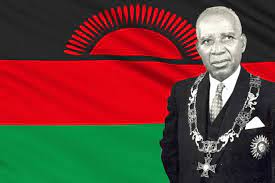The Treacherous Notion of Insulting Religious Sensibilities

By Leo Igwe
I have been campaigning vigorously for the release of Mubarak Bala, who has been jailed for insulting the religious sensibilities of Muslims, some Muslims in Kano. In the past two years, I have engaged the notion of contempt for religion as a crime or an offense that warrants any sanction or penalty. I am of the view that criticizing religions and highlighting their misconceptions, shortcomings and absurdities is a moral and intellectual duty. I have encountered many religious apologists and fence-seaters who have tried to defend the notion that insulting religion is a transgression that should be punished. In this piece, I want to reiterate the implausibility and unintelligibility of the treacherous notion of insulting religion.
As expected the brutal murder of Deborah Samuel for making supposedly blasphemous statements has reawakened the debate on insulting people’s faiths. I have seen some educated Nigerians tacitly justify this obscenity implying that the alleged remark by Deborah Samuel constituted a punishable transgression. Sometimes they put it expressly stating that they do not support making disparaging remarks about others’ religious beliefs. Look, those who try to justify the notion of insulting religion either do not understand the nature of religion or are not good students of history especially the history religions in Nigeria and Africa. Do not get me wrong, I understand that people feel hurt when their well-cherished religious or philosophical views or icons are challenged, criticized, questioned, or ridiculed. But that is what is, and what it means to live in a free and open society.
And this open-society feature is not peculiar to any people or culture. In a pluralistic society like Nigeria, people hold diverse views and opinions. These views may be offensive, hurting, or insulting to others’ beliefs and sensibilities, positions, and propositions. Some people’s religious sense is others’ religious nonsense. A person’s religious food is another’s religious poison. Clear and simple. People are bound to find other people’s religious or philosophical views and opinions objectionable and disagreeable. That is normal and should be expected. Nobody should expect to live in a society where there are no opposing or contradictory views and ideas. So instead of urging against insulting other people’s religious beliefs and sensibilities, which is a pretext for oppression, repression, and suppression of other religious and irreligious ideas, a case should be made for tolerance -tolerance of other religious and non-religious ideas and notions. A case should be made for respect for the rights of others to freedom of religion or belief, and freedom of expression, not respect for others’ religious notions. Ideas should not be respected. Human beings should be respected.
It is disingenuous to accuse people of disrespecting a belief or a religion, or to expect everyone to respect a particular religious icon. That is tyranny. That is a totalitarian tendency. Religious doctrines are to be believed or disbelieved, debated, confessed, and professed. Religions are made to be entertained, embraced or abandoned, renounced, examined and analyzed, accepted or rejected. In matters of faith, respect or disrespect is a factor of belief or disbelief. Christians who treat the Bible with respect do so because they believe that it is the word of God. Muslims respect Muhammad because they believe or are made to believe that he is the messenger from Allah or the greatest prophet of all times. Now, non Christians and non-Muslims do not share these beliefs.
How does one expect an individual to respect a belief or doctrine that he or she rejects? What does it mean to insult a belief, that one thinks is mistaken, false, or untrue? Unfortunately, religion is replete with myths and misconceptions about the universe, nature, and how nature works. Many religious teachings are outdated and incompatible with many scientific and philosophical views. To be specific, how does one expect non-Muslims to treat the prophet of Islam with respect when they do not believe in his prophethood? How does one think that a non-Christian who is of the notion that Jesus never existed would treat Jesus with respect? The mistake many believers make is to expect non-believers to treat and respect their beliefs, objects, and personalities as they do. And as Germans would say: Das gehts lieder nicht(Unfortunately, that is not possible). That is not applicable. That is not healthy for society. Yes, that is not how religions operate.
Now think about it, the religions which demand respect are Christianity and Islam. Meanwhile, these are not the only religions and philosophies that exist in society. Why is it that believers, Muslims in this case, feel entitled to not be offended? Meanwhile, they espouse views and notions that going by their standards insult religious and irreligious beliefs and icons of others. For instance, Muslims claim that making disparaging remarks about the prophet of Islam is a red line. Understood. They claim that nobody should cross the red line without serious consequences. Fine. But in their everyday preaching and profession of faith, they cross the redlines of others; they make disparaging remarks about prophets and propositions of other religions and philosophies. In their profession of faith, Muslims dismiss other gods as non-existent; they downgrade other prophets. Don’t Muslims know that the recitation of Shahada is offensive, insulting, and provocative to many out there?
Muslims tell us that they love their prophets more than their parents, in fact, more than any human being. They tend to forget that people of other faiths and beliefs have a strong emotional attachment to their religious and philosophical icons too. And if people were to respond violently as Muslims often do to those who scorn their faiths and beliefs then there would be no peace in the world. There would no be Muslims or Christians, no believer or non-believer to respect or disrespect religions and philosophies.
It should also be noted that Christianity and Islam are faiths that missionaries, jihadists, and scholars from Europe, the Middle East, and Asia introduced to the region. These two religions owe their spread and dominance to the activities of those who ‘insulted’ and still ‘insult’ African traditional religious gods, prophets, and beliefs. So how does one make sense of the fact that the religions whose members ask that their icons be respected are out there relentlessly lampooning other religions and beliefs as a matter of divine mission and mandate? For centuries missionaries and proselytizers have in some cases, through physical and structural violence, and impertinent insolence toward African traditional world views and identities been furthering the cause of Christian and Islamic faiths.
The idea of insulting other gods, religions, and beliefs is embedded in the religious enterprise. Insulting religious beliefs is not alien to religions. Every religion blasphemes against other religions. Each religion claims to embody absolute truth and divinity as opposed to other religions that are fake or inferior, or custodians of minor/marginal gods. Interesting no religion is monolithic. Every faith is characterized by a plurality of views and doctrines; by competing and opposing sects, denominations, and traditions. These traditions have doctrines, and they make propositions that other faith traditions consider insulting or disrespectful. So insulting religious beliefs is part and parcel of the religious business. It is what religions do as a matter of fact. Instead of urging against insulting religious sensibilities, which is often a demand from members of a particular religion wherever they are in the majority, tolerant pluralism should be encouraged and fostered. Believers and non-believers should be urged to condone other religious and irreligious views. If anyone finds a view offensive or insulting, the person should challenge it, criticize it, scrutinize it, denounce it, examine it, and yes debate or debunk it. People of all faiths and beliefs should learn to accommodate and civilly engage positions and propositions that insult or disparage their faiths or beliefs whether they are in the majority or in the minority.




